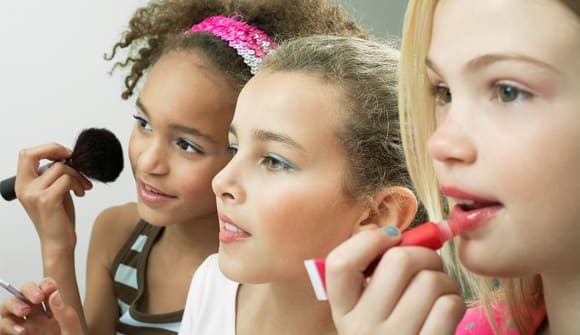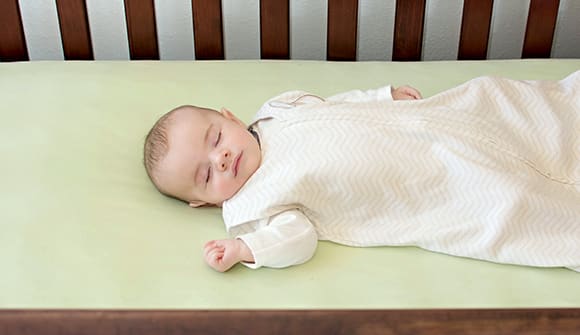Young painted faces
Makeup and children’s mental health.
Article Date:

When actress Selena Gomez shared that wearing makeup as young as age 7 impacted her mental health and made her question her own beauty, it sparked a question for some parents: When are beauty products OK for kids?
“Wearing makeup isn’t likely to lead to severe mental health concerns. It’s the messaging around societal beauty standards – often tied to using cosmetics – that can potentially produce negative emotions,” explained Francesca Varallo Sims, PsyD, director of education and training for Baptist Behavioral Health and Wolfson Children’s Behavioral Health. “For Selena Gomez, wearing makeup was a requirement of her career that may have made her feel objectified, almost likened to a product on display. It’s possible she felt pressured by her industry to put forth a particular image to appeal to large audiences. Such extreme experiences and self-critical thoughts can create mental health challenges.”
Model behavior
Parents play a key role in building healthy self-esteem, and the way they introduce kids to makeup matters.
“You can communicate rules about cosmetics and expectations of beauty standards to your kids through your own use of makeup, such as how often you wear it, for which occasions, and the comments you make about your appearance with and without it on,” Dr. Varallo Sims said. “For instance, saying, ‘I can’t leave the house without makeup,’ or making other disparaging comments about your appearance within an earshot of the kids, may teach them that certain physical attributes and styles equate to being more ‘worthy’ or ‘good.’ This exemplifies an external motivation to use makeup as a means of reducing feelings of inadequacy or shame.”
Accentuate the positive
In contrast, if you engage in positive and confident self-talk about your appearance (or use of cosmetics), you can model a healthy, balanced self-image. If your child expresses interest in makeup, you can discuss the various uses, such as for costume in creative dance or theater performances or as a tool to enhance one’s natural features, Dr. Varallo Sims explained.
“It’s important to encourage children to identify the non-physical things they like about themselves and highlight their internal characteristics that aren’t tied to physical appearance, like being kind, funny, honest or a good friend,” she said. “This way, you can reiterate that their qualities go beyond a specific image or societal ideal. Remind your kids that it’s what’s on the inside, not how they look, that is admired the most.”
Promote open communication by asking questions about your child’s sources of motivation and interest in makeup. You might say:
- "What do you like about wearing makeup?"
- "How does it make you feel?"
- "What quality do you like most about yourself?"
To keep the lines of communication open, make sure to check in with children regularly, whether about self-image or other day-to-day concerns.
Too young for makeup?
So, what is the recommended age to introduce beauty products?
“There is no scientific consensus regarding the role of wearing makeup on mental health and self-esteem, nor is there agreement on prescribing age limits for using cosmetics,” Dr. Varallo Sims said. “This is a personal decision that each family may have a different view on based on circumstances, cultural background and preferences.”
If you need help talking about body image with your child, Common Thread by Wolfson Children’s has tools to support children’s mental health and help kids and teens navigate challenges with confidence and care. To learn more, visit wolfsonchildrens.com/commonthread.



